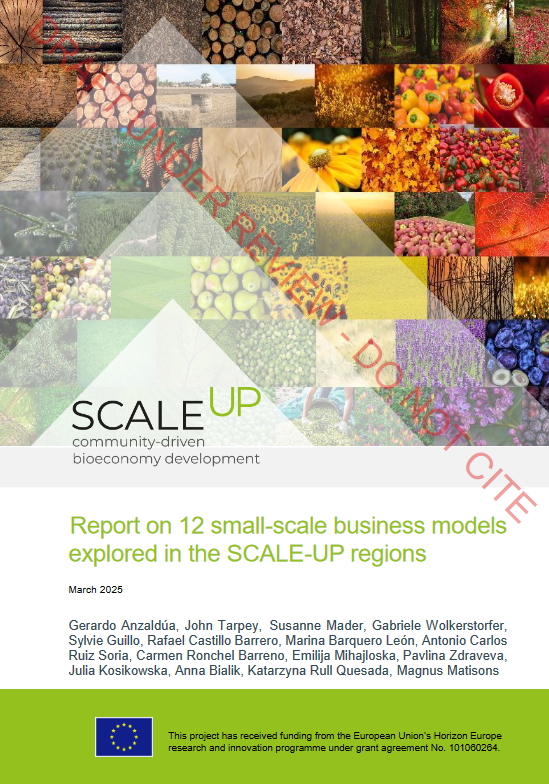12 Small-scale Business Models Explored in the SCALE-UP Regions
- Publication
- Citation
Anzaldúa, Gerardo et al. (2025) Report on 12 small-scale business models explored in the SCALE-UP regions (EU Horizon GA no. 101060264), Deliverable D4.2
The bioeconomy concept presents an attractive framework for policymakers in Europe, as it holds the potential to foster innovations that match specific community needs with regionally available resources. The SCALE-UP project aims to enhance the capacity and expertise of multi-actor partnerships to accelerate the development of market-ready bio-based products and services while facilitating their successful market deployment. Additionally, SCALE-UP strengthens collaboration among primary producers, SMEs, industry clusters, social actors, and policymakers, promoting a cohesive approach to innovation.
Insights from the Innovation Support Programme (ISP)
This report aims to provide a general overview of the activities, results and lessons learned from the implementation of the SCALE-UP Innovation Support Programme (ISP). It sheds light on current conditions in six regional markets for bio-based products and services, drawing on evidence and insights collected using a common framework to assist innovators that was implemented in a distributed manner to build regional capacity that will outlast the project. The work of 12 regional Task Forces supporting selected bio-based innovators highlighted the importance of structured innovation support for market readiness. Despite shifting political and social landscapes, market access remains challenging for sustainability-oriented products, especially those requiring premium pricing. This underscores the need for strong marketing, sales strategies, negotiation skills, and supportive policies.
Lessons for Future Bioeconomy Support Programmes
Notably, half of the participating innovators reflected principles of the Social and Solidarity Economy (SSE), prioritising social and environmental goals. Supporting such mission-driven enterprises calls for targeted tools like better access to finance, legal support, and tailored capacity-building. The experience also revealed that effective innovation support depends on preparation, adaptability, and stakeholder engagement. SCALE-UP ISP further showed how international collaboration enhances market exploration and allows support services to be adapted locally. Future programmes can build on these lessons to strengthen the sustainable and circular bioeconomy through strategic, flexible, and long-term assistance.





